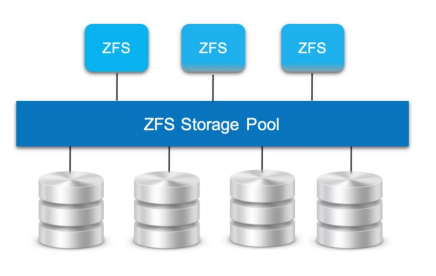What is Oracle ZFS Storage System?
The Oracle ZFS Storage Appliance (Oracle ZFS Storage Appliance) is a best-of-breed, multiprotocol enterprise storage system designed to accelerate application performance, simplify management and increase storage efficiency in a budget-friendly manner. It is suitable for a wide variety of workloads in heterogeneous environments, whether deployed on premises or in the cloud. Collaborative co-engineering within Oracle enables the Oracle ZFS Storage Appliance to offers even more benefits when used in Oracle-on-Oracle environments.
ZFS storage pool is a collection of physical disks rather than the traditional model of a one-to-one connection between the disk or volume and the file system. HDDs and Flash SDDs, write flash-accelerating SSDs, and read flash-accelerating SSDs are physically grouped together in these physical pools of resources. Within a given pool, the storage devices all are subject to the same layout (for example, mirror or RAID) and are managed by the same assigned storage controller. In a dual-controller cluster, for an active/active setup, the physical devices should be provisioned in at least two distinct pools so that each active controller can manage at least one pool. A ZFS virtual device is an internal representation of the storage pool that describes the layout of physical storage and the storage pool's fault characteristics. As such, a virtual device represents the disk devices or files that are used to create the storage pool.

Figure 1 : Architecture of ZFS pooled storage model
Why Monitor Oracle ZFS Storage System?
With the Oracle ZFS Storage system, organizations can optimally scale-up their environment based on the growing needs, and administrators can easily manage the resource allocation to the environment without any glitch and down time. Therefore, insufficient resources in cluster, unavailability of nodes or failure detected in the hardware may result in the loss of huge amount of data. Anything that renders the data inaccessible or delays access to data, such as a disk failure can be disastrous to these mission-critical IT environments. This is why, it is important that the storage system should be continuously monitored for performance flaws – both small or big! This is where eG Enterprise helps storage administrators.